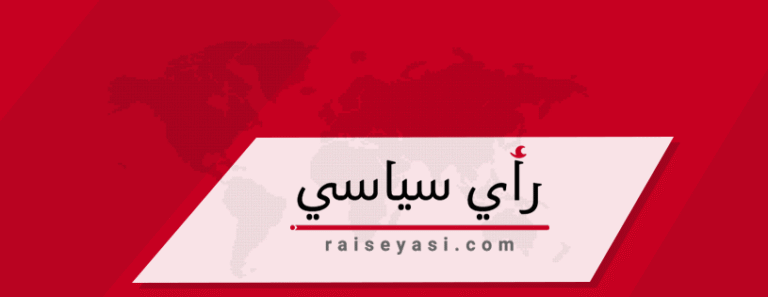By Gordon Brown – The Guardian:
From the US to Europe and Asia, grievances are being exploited to gain power. But moderate voices are still in tune with the majority
Nigel Farage portrays his Reform UK party as a unique phenomenon that has burst on to the global stage, its meteoric rise an exceptional epochal event. But this week, in every one of Europe’s major countries and from India and Thailand to the US and Argentina, hard-right, anti-immigrant, anti-globalisation parties like his are also ahead in the opinion polls.
In last Saturday’s Czech elections, the rightwing, pro-Putin populist Andrej Babiš toppled prime minister
Petr Fiala. National Rally, which has just brought down yet another French prime minister, is leading the polls for both the French presidency and parliament. In Germany, the far-right Alternative für Deutschland (AfD) is currently the most popular party. Hungary’s Fidesz party, Robert Fico’s pro-Russian Slovakian coalition and the Brothers of Italy are already in government, while the Freedom party of Austria (FPÖ), the Netherlands’ Freedom party (PVV) and Belgium’s Vlaams Belang – all hardline nationalists – are part of an international coalition of anti-internationalists, inspired by far-right propagandists like Steve Bannon, seeking to dethrone the international rule of law, diminish human rights and destroy multilateral cooperation.
The populist nationalist surge exposes a new and unavoidable truth that democrats ignore at our peril: an authoritarian ethnic nationalism – once thought toppled with the Berlin Wall – has replaced neoliberalism as the dominant ideology of our age, giving us a world of firsts: “America first”, “India first”, “China first”, “Russia first”, “my tribe first” and often “my tribe first and only” regimes. It is this ethnic nationalism that helps explain why the world is now composed of 91 autocracies and only 88 democracies, and ethnic nationalism is the force behind the violations of international human rights law not just by Russia in Ukraine but in almost every one of the world’s 59 cross-border conflicts and civil wars.
It is important to understand the underlying forces, common to almost every country, that have fuelled this new age of nationalism. It starts with a widely felt sense that a globalisation that was open but not inclusive has been a free for all that has not been fair to all.
For more than a decade, leaders have not only been slow to respond to the millions who feel left out and left behind, but also to the changing balance of global economic power, moving us from a unipolar world once dominated by the US to a multipolar world of competing superpowers, and from a rules-based order to a power-based one. The ethnic nationalism that this has incited means free trade is giving way to protectionism. Where economics used to drive politics, the politics of nationalism is now driving economic decisions, and already more than 100 countries are running mercantilist policies marked out by reshoring and friend-shoring and by bans on cross-border trade, investment and technology transfer, sinking international cooperation to its lowest ebb since 1945.
But all is not lost. The cement is still wet, and even as it hardens we can find hope in the common sense of the global public. In a survey by Focaldata for the Rockefeller Foundation, of 36,000 people in 34 countries we find a clear majority are more resistant to an exclusionary nationalism and more willing to embrace international cooperation than many of the leaders who rule over them.
Across the world there is, perhaps surprisingly, only a small group of hardened anti-internationalists representing 16.5% of the global population (even if 25% in today’s US) who either feel coexistence between ethnic and religious groups is impossible or have a zero-sum mindset that if they or their country do well, it has to be at the expense of others doing badly.
But there are another 21% at the opposite extreme, whom we might call committed internationalists, who either still see cooperation across borders through open trade as a positive sum win-win, or are what the US philosopher and writer Kwame Anthony Appiah calls “rooted cosmopolitans”.
The vast majority of the global public are somewhere in between: not narrow, inward-looking nationalists, as “America first” ideology would suggest, or all-in cosmopolitans. They are patriotic but don’t see the world as in a never-ending struggle between the “us” and the “them”, adversaries permanently set apart from each other in an unbridgeable divide.
Do the majority in the middle prefer a duty-free or a dutiful world? Are they prepared to accept obligations beyond their garden gate or city wall? Yes, under certain conditions. A first group, 22%, will back humanitarian action to relieve suffering and are prepared to act out of altruism, supporting emergency help for disaster zones. Those we might call “good cause” multilateralists feel the pain of others and believe in something bigger than themselves.
A second group comprising 22% are pragmatic multilateralists who want to know that any taxes paid out for international development are spent well. And there is a third group, 21%, self-interested multilateralists, who will endorse cooperation if they can see that it benefits them and their communities, whether it be through guaranteeing them food on the table or peace and security.
So a clear majority can be constructed not just for humanitarian aid if money is well spent but also for
global action to deal with global problems, like climate crisis and pandemic prevention, as long as this case is argued on grounds of enlightened self-interest, and if we stress the reciprocal benefits that flow to them and their own country. And thus for those who have long wondered whether we cooperate out of need or if we have a need to cooperate, the answer is both.
And this openness to cooperate across borders shows how we can turn back the xenophobic tide: we can
defeat today’s negative, inward-looking and often aggressive and authoritarian nationalism that demonises immigrants, foreigners and “others” as long as we champion a positive, outward-looking and inclusive patriotism that responds to people’s desire to belong and resonates with their immediate concerns.
And while in-depth polls tell us that across the west, illegal immigration is currently the biggest national issue – and no one should doubt that it must quickly be brought under control – the snapshots of opinion also tell us that the public are even more concerned about what is happening in their own lives and within their own local communities. Last month, Keir Starmer spoke movingly about how what’s good about Britain can drive out what’s bad, doing so precisely because in most western countries, “broken” and “in decline” are the words people have for years most commonly cited when asked about both our economy and society.
But as the prime minister also reminded us, the far right is more interested in exploiting grievances than ending them. Farage hailed Liz Truss’s disastrous mini-budget as “the best Conservative budget since 1986”. But he would also enact Truss act two – what she planned to deliver – the biggest ever cuts in public services. Reform’s plan to reduce public spending by £275bn would not repair downtrodden communities but ravage them, turn citizen against citizen and wreck any spirit of solidarity. Under a Farage hard-right regime, you will not be able to afford to be sick, disabled, poor or vulnerable. Every day from now on, and in every constituency, Reform should be asked which hospital, which school and which public service will be the first to be cut or closed.
“Faragism” is neoliberalism at its most inhumane, more destructive even than monetarism, and vindictive far beyond austerity. What the public are telling us all over the west is that they want their governments to rebuild our economies and our civic societies . “Reform” and its global allies should be exposed day after day for policies that would devastate both. And for those of us who believe our best days could be ahead of us, we can go beyond highlighting Reform’s hypocrisy by setting out a case for a better Britain that appeals not just to idealists, but to pragmatists, to self-interest, and to the everyday compassion of the British people.


